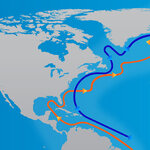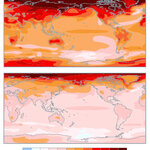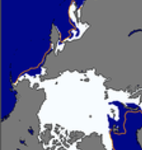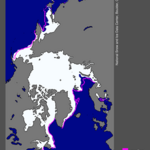
The potential contribution to sea level rise from a collapse of the West Antarctic Ice Sheet (WAIS) have been greatly overestimated, according to a new study in Science. These scientists estimate global sea level would rise 3.3 metres, not five or six, which were some previous estimates.
Long thought of as the sleeping giant with respect to sea level rise, Antarctica holds about nine times the volume of ice of Greenland. Its western ice sheet is of particular interest to scientists due to its unusual below-sea level topography, which is believed to make it inherently unstable. But the…








